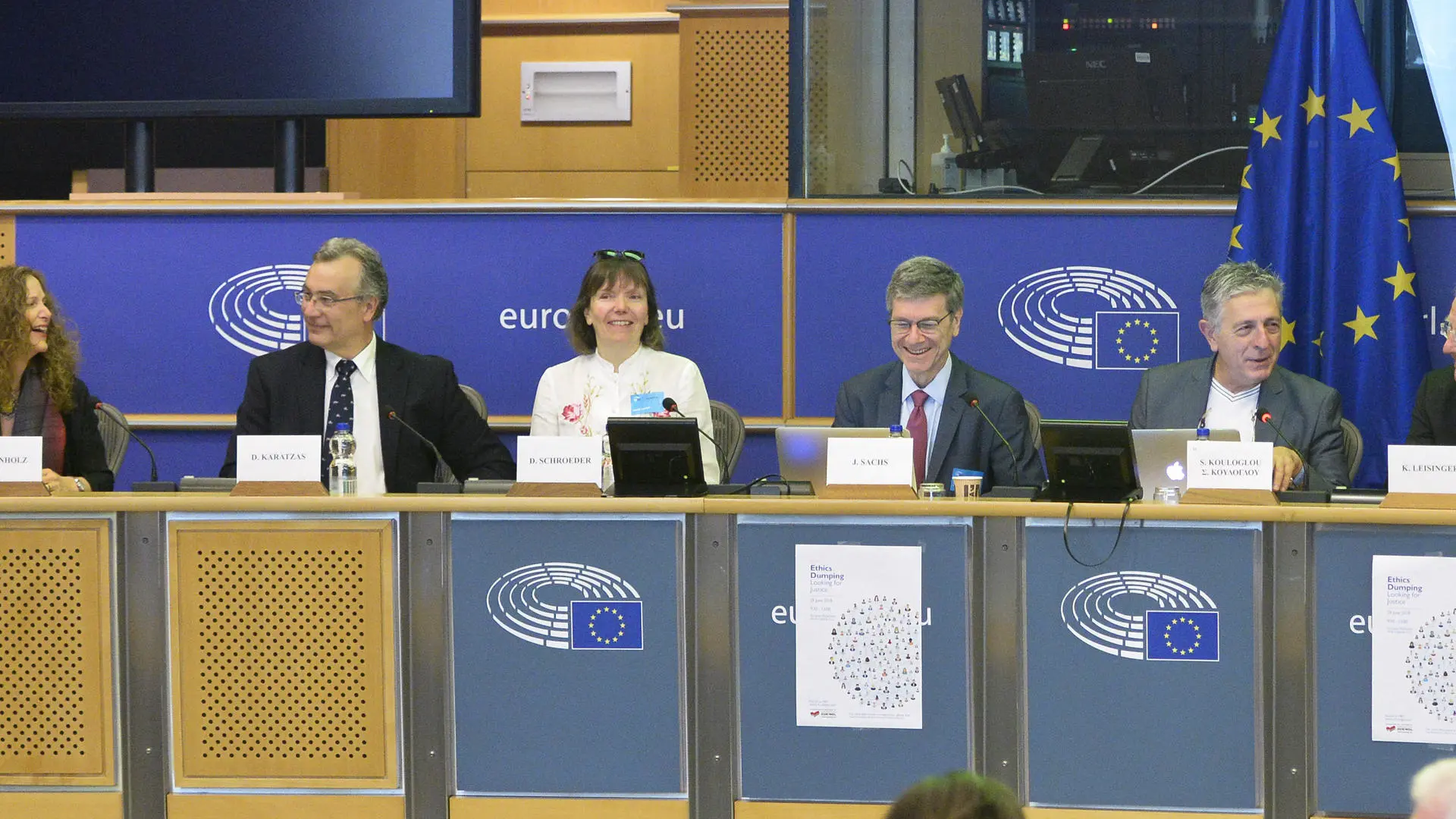Image: European Parliament Trust Project 2018, © Stelios Kouloglou.
Achieving equity in international research is one of the pressing concerns of the 21st century.
Globalisation presents many ‘opportunities’ for the deliberate or accidental export of unethical research practices from high-income countries to low and middle-income countries. This has given rise to the concept of ‘ethics dumping’.
Schroeder’s research informed The Global Code of Conduct for Research in Resource-Poor Settings (GCC), which was adopted by the European Commission (EC) in 2018. The GCC aims to counter ‘ethics dumping’, the off-shoring of unethical research to resource-poor settings. Recipients of EU funding now have to show adherence to the GCC. If they fail to do so, EC ethics panels can request modifications of study protocols. Additional international research funders who have implemented the GCC include the European & Developing Countries Clinical Trials Partnership (EDCTP) for all funding calls and the Dutch Research Council for one funding call. The first charitable foundations to adopt the GCC were the Abaseen Foundation (UK) and the Global Values Alliance (Switzerland) and the first universities were the University of Cape Town, the University of Central Lancashire, and the University of Witwatersrand. For the European Commission and the EDCTP alone this equates to nearly £318,000,000 of research funding being spent in accordance with the GCC, ensuring that research complies with the core values of fairness, respect, care and honesty. Researchers in at least 44 countries are now aligning their study protocols with the GCC.
Based on almost 15 years of research to protect vulnerable populations in low and middle-income countries from exploitation, Professor Doris Schroeder’s team formulated the value-based approach to research ethics around fairness, respect, care and honesty. Using these values, Schroeder was the lead drafter of the first version of the GCC. The final version of the GCC was agreed upon by 56 authors, drawn from all continents and all research stakeholder groups.

